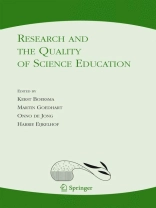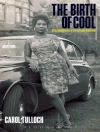In August 2003 over 400 researchers in the field of science education from all over the world met at the 4th ESERA conference in Noordwijkerhout, The Netherlands. During the conference 300 papers about actual issues in the field, such as the learning of scientific concepts and skills, scientific literacy, informal science learning, science teacher education, modeling in science education were presented.
The book contains 40 of the most outstanding papers presented during the conference. These papers reflect the quality and variety of the conference and represent the state of the art in the field of research in science education.
Cuprins
From Normal to Revolutionary Science Education.- Reflections on a Problem Posing Approach.- How Can Large International Comparative Studies Contribute to the Quality of Science Education?.- Towards a More Curricular Focus in International Comparative Studies on Mathematics and Science Education.- 40 Years of Curriculum Development.- Characteristics of Meaningful Chemistry Education.- Cross-Curricular Collaboration in Teaching Social Aspects of Genetics.- School Innovation in Science: Change, Culture, Complexity.- Ways of Using ‘Everyday Life’ in the Science Classroom.- Science Teacher Education: Issues and Proposals.- Outcomes of Professional Development in Primary Science: Developing a Conceptual Framework.- Chemistry Teachers Research Their Own Work: Two Case Studies.- The Relationships Between Primary Teachers’ Attitudes and Cognition During a Two Year Science In-Service Programme.- Teaching Concepts in Contexts: Designing a Chemistry Teacher Course in a Curriculum Innovation.- Epistemological Thought and Role-Playing: Impact on Pre-Service Teachers’ Opinions on Mobile Phone Risks.- Teaching-Learning Sequences Tools for Learning and/or Research.- Designing and Evaluating Short Science Teaching Sequences: Improving Student Learning.- Discussing a Research Programme for the Improvement of Science Teaching.- “Scientific Communication”: An Instructional Program for High-Order Learning Skills and Its Impact on Students’ Performance.- Learning about the Nature of Scientific Knowledge: The Imitating-Science Project.- The Effect of Using Drama in Science Teaching on Students’ Conceptions of the Nature of Science.- The Relevance of Teaching about the “Nature of Science” to Students of the Health Sciences.- Teaching about the Epistemology of Science in School Science Classrooms: Case Studies of Teachers’ Experiences.- A Three-Phase Design for Productive Use of Analogy in the Teaching of Entropy.- Dynamic Assessments of Preservice Teachers’ Knowledge of Models and Modelling.- Investigating Teachers’ Ideas about Models and Modelling — Some Issues of Authenticity.- Investigation of Effects and Stability in Teaching Model Competence.- Using Multiple Analogies: Case Study of a Chemistry Teacher’s Preparations, Presentations and Reflections.- The Role of Argument in Science Education.- The Role of Argumentation in Developing Scientific Literacy.- Meaning Making in High School Science Classrooms: A Framework for Analysing Meaning Making Interactions.- From a Causal Question to Stating and Testing Hypotheses: Exploring the Discursive Activity of Biology Students.- Argument Construction and Change while Working on a Real Environment Problem.- Textbooks and Their Authors: Another Perspective on the Difficulties of Teaching and Learning Electricity.- The Concept of Force as a Constitutive Element of Understanding the World.- Changes in College Students’ Conceptions of Chemical Equilibrium.- Parallel Conceptions in the Domain of Force and Motion.- A Cross-Sectional Study of the Understanding of the Relationships Between Concentration and Reaction Rate among Turkish Secondary and Undergraduate Students.












